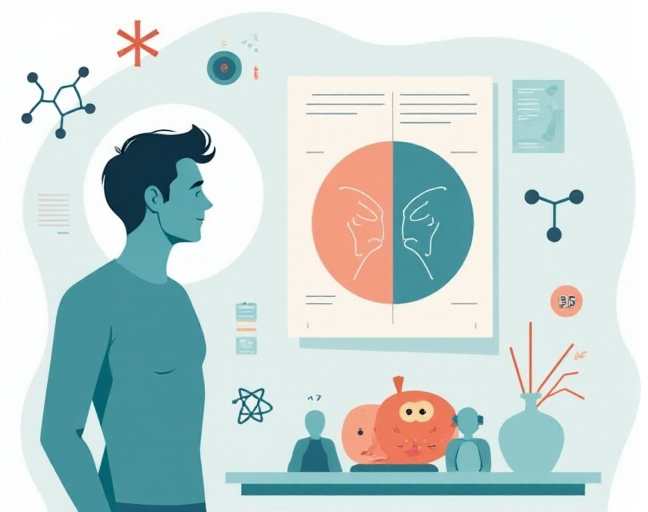You’ve probably heard of menopause, but did you know that men go through hormonal changes too? It’s not just a female thing! As men get older, typically in their 40s, they begin to experience a natural decline in testosterone, a condition often referred to as andropause. While this doesn’t cause infertility, it does lead to noticeable shifts in sexual health and physical well-being.
How Hormones Change in Men
Before puberty, testosterone levels in males are low. However, once puberty kicks in, these levels rise dramatically, contributing to key changes like deeper voices, muscle growth, and increased body hair. This surge continues throughout adolescence and into early adulthood, peaking in a man’s 20s. But as men age, their ability to produce testosterone declines, leading to a steady drop that affects various aspects of health.
What Happens to Testosterone Levels Over Time?
Testosterone, along with other hormones like DHEA, naturally decreases as men age. By the time men hit their 40s, their testosterone levels start to dip significantly. In fact, by the time they reach their 60s, around 20% of men will experience a sharp decline in testosterone. By the time they’re 80 or older, that number jumps to about 50%. This drop impacts many areas of life, especially sexual health, because testosterone is crucial for maintaining libido and performance.
Normal Testosterone Levels: What’s Considered Low?
Testosterone levels can vary, but generally, healthy levels for men between 20 and 49 range from 2.7 to 17.3 ng/ml. For men aged 50 and above, normal levels drop to between 2.1 and 7.6 ng/ml. Anything lower than 2.5 ng/ml for younger men, or 2.0 ng/ml for older men, is considered low. But age isn’t the only factor; conditions like obesity, diabetes, infections, and even certain medications can contribute to lower testosterone levels.
The Testosterone/Estrogen Balance
Testosterone isn’t the only hormone that affects men’s health. As men age, the balance between testosterone and estrogen shifts. Though testosterone is typically the dominant hormone in men, a small amount of estrogen is naturally produced from testosterone. This balance becomes increasingly disrupted as men age, particularly due to the activity of an enzyme called aromatase. This enzyme, found mostly in fat cells, converts testosterone into estrogen, leading to a drop in testosterone levels and the accumulation of fat, especially around the abdomen.
What Happens When Hormone Changes Occur?
As testosterone levels drop, men may experience several physical and emotional changes. Here’s what might happen:
- Low Libido: Testosterone plays a huge role in sexual desire. So, as testosterone levels fall, men in andropause often experience a noticeable decline in libido. One study found that 91% of men over 40 reported reduced sexual desire.
- Depression: Testosterone impacts mood regulation. When testosterone levels decline, it can lead to feelings of sadness, irritability, and even depression. Research from 1985 found that lower testosterone levels were closely linked to more severe depression.
- Fatigue: Testosterone helps regulate energy levels. As men age and testosterone drops, they may experience a constant feeling of exhaustion. This could lead to them dozing off right after meals, for example.
- Insomnia: Interestingly, a drop in testosterone doesn’t just cause fatigue—it can also mess with sleep. Testosterone helps regulate sleep patterns, so men going through andropause might struggle with disturbed sleep and even insomnia.
- Osteoporosis: Testosterone is also important for bone health. Low testosterone can lead to weaker bones and an increased risk of conditions like osteoporosis.
- Abdominal Fat Gain: Low testosterone can cause fat to accumulate, especially around the abdomen. And here’s the catch: this fat also produces more aromatase, which converts even more testosterone into estrogen. This creates a cycle where low testosterone leads to more fat, and more fat leads to even lower testosterone levels.
- Additional Symptoms: Other signs of hormonal changes in men include:
- Enlarged breasts
- Lower self-esteem and motivation
- Difficulty concentrating and memory issues
- Fewer spontaneous erections
- Increased irritability and anxiety
- Reduced muscle size and strength
- Decreased sperm count
- Low red blood cell count
How to Manage Hormonal Changes in Men
While hormonal decline is a natural part of aging, it can be disruptive. If you’re experiencing significant changes in your health, it’s important to consult with a doctor. A simple blood test can help determine your testosterone levels, and your doctor can recommend next steps.
Lifestyle Changes to Improve Health
Your doctor may suggest making lifestyle changes to combat the effects of low testosterone. Here are some things you can do:
- Exercise regularly: Physical activity can boost testosterone and improve overall health.
- Eat a balanced diet: A healthy diet can help keep your hormones in check and maintain a healthy weight.
- Manage stress: Stress can negatively impact your testosterone levels, so it’s important to find ways to relax and reduce stress.
- Get enough sleep: Sleep plays a big role in hormone regulation, so aim for quality rest each night.
Medications and Therapy
In some cases, lifestyle changes might not be enough, and medications may be necessary. For men with depression, antidepressants and therapy can help. Additionally, some men may turn to hormone replacement therapy (HRT) to restore testosterone levels. However, HRT can be controversial, especially for men with prostate cancer, as it may encourage the growth of cancerous cells.
In short, while hormonal changes in men are inevitable, managing the symptoms through lifestyle adjustments and medical treatments can make a significant difference. Always consult your doctor to figure out the best approach for you.

